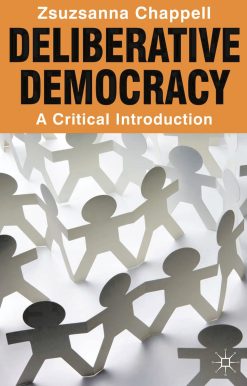How Babies Talk: The Magic and Mystery of Language in the First Three Years of Life
19.00 JOD
Please allow 2 – 5 weeks for delivery of this item
Add to Gift RegistryDescription
In their first three years of life, babies face the most complex learning endeavor they will ever undertake as human beings: They learn to talk. Now, as researchers make new forays into the mystery of the development of the human brain, Golinkoff and Hirsh-Pasek, both developmental psychologists and language experts, offer parents a powerfully insightful guidebook to how infants—even while in the womb—begin to learn language. Along the way, the authors provide parents with the latest scientific findings, developmental milestones, and important advice on how to create the most effective learning environments for their children. This book takes readers on a fascinating, vitally important exploration of the dance between nature and nurture, and explains how parents can help their children learn more successfully.
Additional information
| Weight | 1.57 kg |
|---|---|
| Dimensions | 1.53 × 15.24 × 22.86 cm |
| PubliCanadation City/Country | USA |
| Format | |
| Language | |
| Pages | 272 |
| Publisher | |
| Year Published | 2000-7-1 |
| Imprint | |
| ISBN 10 | 0452281733 |
| About The Author | Roberta M. Golinkoff, Ph.D., is a professor in the departments of Educational Studies, Psychology, and Linguistics at the University of Delaware, a Fellow of the American Psychological Association, and the recipient of the John Simon Guggenheim Memorial Fellowship. She lives in Newark, Delaware.Kathryn Hirsh-Pasek is the Stanley and Debra Lefkowitz Faculty Fellow in the Department of Psychology at Temple University and a Senior Fellow at the Brookings Institution. Her research examines the development of early language and literacy as well as the role of play in learning. With her long-term collaborator, Roberta Golinkoff, she is author of 14 books and hundreds of publications, she is the recipient of the American Psychological Association’s Bronfenbrenner Award, the American Psychological Association’s Award for Distinguished Service to Psychological Science, the Association for Psychological Science James McKeen Cattell Award, the Society for Research in Child Development, Distinguished Scientific Contributions to Child Development Award and the APA Distinguished Lecturer Award. Her book Becoming Brilliant: What the Science Tells Us About Raising Successful Children was a New York Times bestseller. |
“This is a great book. It’s an important addition to any parent’s library.”—T. Berry Brazelton “An in-depth study of language development during the first three years of life… The text is interspersed with activities readers can use to assess the specific development of their own children… useful and interesting to anyone involved with young children.”—Library Journal “Crisp, clear, concise, often humorous. The contents are unusually substantive for a handbook targeted to parents, as the bibliography of scientific citations confirms. Important scientific results and their applications to daily life are highlighted as lessons under the heading ‘Scientific Sleuthing Pays Off’ and modified for use at home as ‘Try This’ exercises. A key resource for parenting collections.”—Booklist |
|
| Table Of Content | Introduction. Setting the Stage: The Magic of Language Development in the First Three Years of LifeLanguage MilestonesThe Source of Our Knowledge: Scientific SleuthingTheoretical breakthroughsMethodological breakthroughsScientific Sleuthing Pays offChapter 1. Watch Your Language! The Fetus Can Hear You: Development from Before Birth to Three Months of AgeThe FetusThe Fetal Environment: Home Sweet HomeBaby, Do You Read Me? Hearing Mother's Voice and Other SoundsTry This: Can my fetus hear? Can my fetus hear me?Does Fetal Learning Mean Fetal School?Birthing the Baby: Will the Newborn Resemble the Fetus?Try this: Does the newborn react to sounds?Communicating Through CryingMother, Is That You? Newborns Prefer to Hear Mother's VoiceDistinguishing the World's LanguagesTry This: Does your baby respond to foreign languages?Face-to-Face: Love at First Look?Try This: Charting baby's smilesDo Mouths and Voices Work Together?Newborn CopycatsTry This: Can my baby copy me?The Roots of ConversationBaby Talk MattersTry This: Do babies react to baby talk?More Than Meets the EyeScientific Sleuthing Pays OffLesson 1. Silence is not goldenLesson 2. New scientific methods can yield assessment toolsLesson 3. Overestimate your baby's capabilitiesChapter 2. Yada-Yada-Yada: The Babbling Period Between Four and Eight Months of AgeBabies Do BabbleHow Babies Talk to UsTry This: Conversations from the Crib?From Coos and Goos to BabblingTry This: Are "Mama" and "Dada" real words or just arbitrary sounds?Why Babies Babble How We Babble to BabiesWidening the Topics of ConversationTry This: Finding objects near and farFinding the Words (and Other Units) in a Stream of SpeechWhat's a Word Worth?Use Your Head! The Headturn Preference ProcedureTry This: Will baby notice disrupted speech?Learn Your Handle: Lauren, Not LouiseTry This: Does baby respond to her own name?Once Upon a Time: Babies Recognize Words in StoriesHow Do You Mean? Babies Grapple with Word MeaningsScientific Sleuthing Pays OffLesson 1. Hear ye, hear ye: Watch for ear infectionsLesson 2. There is nothing wrong with small talkChapter 3. Point-ilism: Parents Become Tools for Babies between Nine and Twelve Months of AgeLearning to Communicate without WordsFinding the Causal Connection: My Signals Can Make Things Happen!Try This: Can my baby communicate with intention?How Do Babies Learn to Make Their Point?Try This: When can baby follow a point?The Negotiation of Failed Messages: You Just Don't Get It!Try This: How does my baby negotiate?Let the Words Begin!Preverbal Communication: The Cradle of MeaningDetecting the Patterns in the Language StreamThe Decline in Distinguishing Among the Sounds of the World's LanguagesWhither the Words?Try This: Playing gamesScientific Sleuthing Pays OffLesson 1. Honor babies' communicative attempts even before they are intentionally communicativeLesson 2. Put my thoughts into words!Chapter 4. First Words: Getting "Hi" between Twelve and Eighteen Months of AgeWhat Does It Take to Learn a Word?The Flowering of VocabularyThe Stars and Stripes and Other SymbolsTry This: Comics in the crib?The Fertile Path to Real WordsTry This: Creating a diary of protowords and first wordsCommunicating EfficientlyTry This: Tracking the use of baby's first ten words"Home Signs" and "Baby Signs"Try This: Can my baby learn some baby signs?Symbols, Categories, Meanings, and Emotions"Dog," Not "Dalmatian"; "Hat," Not "Baseball Cap": Why Babies Prefer Some Words over OthersTry This: What kinds of words are my baby's first ten words?How Do Meanings and Words Come Together?Saying Your First Words: A Sobering TaskTry This: Does my baby express emotion when she talks?First Words Take Effort, More for Some Than OthersA Tale of Two ToddlersName Callers and Social SophisticatesTry This: Is my baby a name caller or a socialite? What kind of parent am I?Word Comprehension Exceeds Word ProductionScientific Sleuthing Pays OffLesson 1. More baby talk=More baby's talkLesson 2. There are big individual differences in the appearance of the first wordsLesson 3. Picture book reading is a source of new wordsLesson 4. When do you worry about a lack of words?Chapter 5. Vocabulary Takes Wing: Eighteen to Twenty-Four MonthsThe Vocabulary SpurtFinding the Vocabulary SpurtTry This: Catching the torrent of words in a diaryWord Leaning Is a Bear (Bare?)What Are Toddlers Talking About?Try This: Book reading as a classroom for word learningBabies Overextend Themselves: Misapplying Words for All the Right ReasonsTry This: Looking for overextensionsDoes Sensitivity to Social Cues Lead to the Vocabulary Spurt?Try This: Is your child using social cues to learn new words?Do Mental Advances Lead to the Vocabulary Spurt?Try This: Categorizing obejcts and the vocabulary spurtFast Mapping: Novel Names Go with Novel CategoriesTry This: Fast mapping and the vocabulary spurtAn Integrated View of the Vocabulary Spurt: It Takes Social and Mental AdvancesIndividual Differences in Word LearningPronunciation: Saying It My WayTry This: Recording the baby's favorite mistakesBoys and Girls: Early Sightings of Mars and VenusFirstborn Versus Later-Born ToddlersSocial Class Differences in Word LearningScientific Sleuthing Pays OffLesson 1. The study of normal development helps in understanding language problemsLesson 2. More language in=More language outLesson 3. Watching TV cannot make up for real comunicationChapter 6. "More Juice!" – Babies Understand and Produce Simple Sentences Between Eighteen and Twenty-four Months of AgeWhat Toddlers Can SayTwo-Word Sentences Say It AllTry This: Two-word sentences take off! But what do they mean?What Enables the Baby to Use Two-word Speech?What Toddlers Can UnderstandInvestigating Two-Word Productions: What Children ComprehendTry This: What are the cues my baby relies on to understand sentences?What Does It Mean to Understand Sentences?Babies find the units in the language streamBabies realize that words in sentences describe events in the worldTry This: Can my baby understand that language maps to unique events?Different arrangements of the units in sentences change sentence meaningTry This: Does my baby understand that differences in word order signal differences in meaning?Beyond Word Order: Children Attend to Grammatical ElementsTry This: Is my baby sensitive to grammatical elements?"With" – A Grammatical Element in ActionComprehension Far Outpaces Production, But Why?Scientific Sleuthing Pays OffLesson 1. Engage in rich interpretation but don't bother to correctLesson 2. Your baby's caregiver is your allyChapter 7. The Language Sophisticate at Twenty-four to Thirty-six Months: Why? Why? Why?The Emergence of Grammatical CapabilityAdding Glue to the Sentence: Function Words and ParticlesTry This: Finding grammatical function words and particles in your child's speechOvergeneralizations: It Breaked!Asking QuestionsWhat's Up, Doc? Wh-QuestionsWhy, Why, Why?Ifs, Ands, and Buts: The Grammatical SpurtIs It Really Grammar?The Source of Grammatical Capability in the Human SpeciesWhere Does the Grammar Come From?A Language Instinct?The Critical Period: Time Is Running OutScientific Sleuthing Pays OffLesson 1. When should you worry?Lesson 2. What should be do or not do to promote language growth?Lesson 3. It's never too early to start learning a second languageChapter 8. "Please" and "Thank You": Using Language to Get Things Done Between Twenty-four and Thirty-six MonthsMastering the Uses of LanguageLearning a Language Is Learning a CultureWhat Are You Really Asking? How Toddlers Understand RequestsTry This: How do I ask questions? Does my child make conventional inferences?How To Ask: Getting What We WantTry This: Can my child consciously use polite speech?Learning Social RoutinesConversations with Two-Year-OldsTry This: Can my child observe conversational rules?Beyond Conversation: Telling the Stories of Our Lives Through NarrativesTry This: Does my child tell coherent narratives?Using Language for Fun: Jokes and PretenseTry This: Does my toddler make jokes?Scientific Sleuthing Pays OffLesson 1. Constructing life stories with your child promotes narrative developmentLesson 2. There's more to storybooks than meets the eyeEpilogue. Tying It Up: Language Development from Birth to Age ThreeHow Far Have Children Gone?Where Is the Child Going?ReferencesIndex |
Only logged in customers who have purchased this product may leave a review.






Reviews
There are no reviews yet.